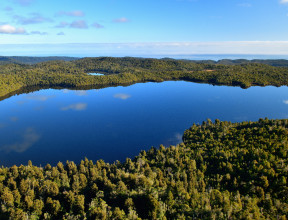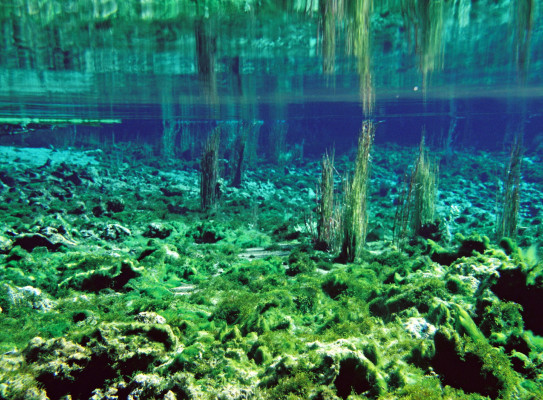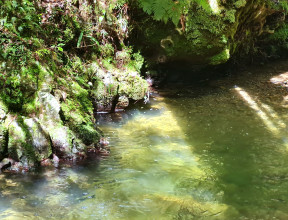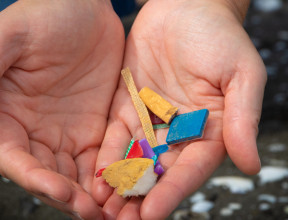
Groundwater

Groundwater is essential for environmental integrity, social wellbeing and economic productivity.
We still don’t know enough about our groundwater resources in Aotearoa.
The unknowns of our groundwater
- the locations, extents and properties of all of New Zealand’s aquifer systems
- how groundwater travels into, through and out of the aquifers
- how contaminants move into, through and out of the aquifers
- how our groundwater resources are connected to surface water bodies like rivers, streams and wetlands.
Without this information, it is difficult to adequately assess how New Zealand’s groundwater resources are impacted by increasing pressures like land use and climate change now and in the future.
Filling in the gaps
Our research supports wise custodianship of groundwater by filling in the gaps in our knowledge and understanding of New Zealand’s groundwater resources, and developing novel tools and models for efficient and sustainable groundwater management.
Te Whakaheke o Te Wai transcript
The name of this research program is Te Whakaheke o Te Wai or loosely translated the meandering waters, and that is a reflection of our groundwater systems and also our focus that we're working in Hawke's Bay on, on the Hirotanga catchment, and the nature of the water and how it flows through our lands.
The aim of the project is to better understand groundwater flow, the pathways of groundwater flow and the origins of groundwater beneath the surface with the idea that if we can understand it better we can manage it better.
The project is a sort of sum of three parts isotope science mataranga knowledge and modelling and I lead the modelling stream. And what we're doing is to build a framework that allows models to be built very very quickly as soon as there's a concern and you tailor the model to answer the question or the concern that it's meant to be addressing, and they'll answer the question a lot more accurately.
So my role in this project is to ensure that mataranga maori or maori knowledge is incorporated into this project.
It's important that we increasingly and incorporate indigenous knowledge with western science when we're trying to and better understand things particularly in this case around the water and how we can better look after this resource that we have.
For Hawke's Bay and one outcome from this project is that we are definitely going to be able to manage our water resources much more effectively, but as a nation I think having these tools that can be applied nationally will help address the some of the big problems we have with water resource management that are fairly consistent across the country.
Over many years I have been developing techniques to read the isotopic signature of groundwater which can tell us about what where the water is being recharged so the recharge source, but also how long it has been underground which then will give us a better understanding of how to manage groundwater resources.
Apart from just the tools that this project's going to provide, I think it's one of the best things about it is working with a really really super talented bunch of people at GNS science, and getting into some novel research and practical science that is pushing the limits of what's being done before so in that respect it's really quite exciting.
Te Whakaheke o Te Wai
The Te Whakaheke o Te Wai (TWOTW) research programme aims to better support water management based on the understanding of flow sources, pathways and lags.
Our Expertise
- Physical hydrogeology
- Aquifer mapping
- Remote sensing and Geophysics for aquifer mapping
- Geological modelling
- Groundwater modelling
- Groundwater quality
- Isotope hydrology and water dating laboratory services
- Groundwater microbiology and ecosystems
- Climate change impacts on groundwater
- Earthquakes and groundwater
- Groundwater policy
- Māori co-management of water
- Groundwater databases and tools
Our work is structured into five high-level research questions:
- What are the locations and properties (structural, hydrogeological and fluid) of New Zealand's aquifer systems?
- What are the fluxes of water into, out of and through, New Zealand's aquifers?
- What are the fluxes of key substances into, out of and through, New Zealand's aquifers?
- How have (and will) human activities, climate change and other pressures affect New Zealand's groundwater resources and receiving environments (e.g. springs, rivers and lakes)?
- How can our research findings better guide water policy implementation?

